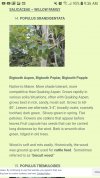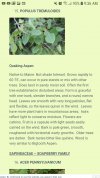You are using an out of date browser. It may not display this or other websites correctly.
You should upgrade or use an alternative browser.
You should upgrade or use an alternative browser.
Removing a glued wedge
- Thread starter Maine20
- Start date
- Joined
- Mar 31, 2018
- Messages
- 1,874
Only removed an epoxied one and it wasn't fun. Did you glue it or someone else?
- Joined
- Feb 15, 2017
- Messages
- 935
Did on a couple swiss surplus axes.Drill and a little chisel it wasnt that bad.
I have never glued one but have been thinking about starting to. I will say that I Haven’t had any unglued wedges budge, so I am not sure if it’s worth the extra effort to remove if a rehang is needed.Only removed an epoxied one and it wasn't fun. Did you glue it or someone else?
David Martin
Moderator
- Joined
- Apr 7, 2008
- Messages
- 19,520
I just use a drill w/ a 1/4" bit and a chisel. They come right out. DM
- Joined
- Mar 31, 2018
- Messages
- 1,874
I shy away from glue or swell lock for the same reason you mentioned. I don't have an issue with heads coming loose or wedges coming out. It happened to me a couple times but it was my choice of material that caused it. I've been using white birch for wedges and i think I'm going to permanently switch. I'm having really good luck with them. It has all the properties of popular but is a tad harder. I know it isn't very rot resistant but kept free from water and well oiled i think they'll hold up fine.I have never glued one but have been thinking about starting to. I will say that I Haven’t had any unglued wedges budge, so I am not sure if it’s worth the extra effort to remove if a rehang is needed.
- Joined
- Feb 1, 2012
- Messages
- 13,727
I shy away from glue or swell lock for the same reason you mentioned.
Just to let people know, Swell Lock has no adhesive properties.
I've been using white birch for wedges and i think I'm going to permanently switch. I'm having really good luck with them. It has all the properties of popular but is a tad harder. I know it isn't very rot resistant but kept free from water and well oiled i think they'll hold up fine.
Where does White Birch sit on the Janka scale? I couldn't find white birch on the database. Does it have another name?
- Joined
- Mar 31, 2018
- Messages
- 1,874
Where does White Birch sit on the Janka scale? I couldn't find white birch on the database. Does it have another name?
 I was saying it was harder just from feel and not from a scientific standpoint. It certainly feels harder than poplar. I've been using it exclusively now for awhile and I'm loving it.
I was saying it was harder just from feel and not from a scientific standpoint. It certainly feels harder than poplar. I've been using it exclusively now for awhile and I'm loving it.
I wasn't aware of how hard white(paper) birch actually is! I've found it's still soft enough to conform to the small irregularities in the eye. Good stuff.
Last edited:
- Joined
- Mar 2, 2013
- Messages
- 1,772
This "poplar" or Tulip poplar or Southern yellow poplar, it's no poplar.
- Joined
- Apr 20, 2017
- Messages
- 1,000
"Common names" are an exacerbated problem in the USA, as the country is so large. Tulip poplar isn't poplar but it's the most common "poplar" wood many people in the USA run into. Our "cedars" aren't cedars, etc. It can be confusing, and that's just commercial timber. It's a problem across the board.
When you start to talk to people in different parts of the country about the same organism and they call it different things, the same common names but refer to different organisms in different areas, etc. I can tell you as a biologist I figure out what they are talking about specifically in the most literal sense. Because if you don't you're getting nowhere fast.
Common names aren't reliable without context. It's simpler and more quickly accurate to know the organism by the binomial name and then figure out what people are talking about.
When you start to talk to people in different parts of the country about the same organism and they call it different things, the same common names but refer to different organisms in different areas, etc. I can tell you as a biologist I figure out what they are talking about specifically in the most literal sense. Because if you don't you're getting nowhere fast.
Common names aren't reliable without context. It's simpler and more quickly accurate to know the organism by the binomial name and then figure out what people are talking about.
- Joined
- Mar 31, 2018
- Messages
- 1,874
It's the only kind of poplar we have in Maine. It's all junk. So that's why I call it poplar. But what do you guys mean? It isn't poplar? Everyone I know knows what poplar is. Except my uncle and everyone else pronounces it(Regional diction) popple.
And our eastern white cedar sure seems like cedar to me! What do you mean there?
And our eastern white cedar sure seems like cedar to me! What do you mean there?
- Joined
- Mar 31, 2018
- Messages
- 1,874
Oh i see. Cottonwood. Among other things. Wow there really is truth to the statement "the smarter you get the dumber you are". My whole life I thought, because folks here in Maine don't enunciate very well, that when they said popple they meant poplar. WRONG. 

I've always loathed poplar. Or popple I guess. They have a yellow fungus all over the trunk and they're just scraggly and ugly. The wood sucks and they don't live all that long.
Our eastern white cedar though I do believe is a very good representation of cedar.


I've always loathed poplar. Or popple I guess. They have a yellow fungus all over the trunk and they're just scraggly and ugly. The wood sucks and they don't live all that long.
Our eastern white cedar though I do believe is a very good representation of cedar.
Last edited:
- Joined
- Mar 2, 2013
- Messages
- 1,772
For just as long as you're talking with people in your own region then there is no confusion.It's the only kind of poplar we have in Maine. It's all junk. So that's why I call it poplar. But what do you guys mean? It isn't poplar? Everyone I know knows what poplar is. Except my uncle and everyone else pronounces it(Regional diction) popple.
And our eastern white cedar sure seems like cedar to me! What do you mean there?
- Joined
- Apr 20, 2017
- Messages
- 1,000
Our "cedars" are in the family cupressaceae, which is cyprus. Cedrus spp. are the "true cedars," none of them naturally occurring in the USA.
Poplar is anything in the genus Populus, but "Tulip Poplar" isn't in the genus. We're victim to a lot of this type of stuff.
Poplar is anything in the genus Populus, but "Tulip Poplar" isn't in the genus. We're victim to a lot of this type of stuff.
- Joined
- Feb 1, 2012
- Messages
- 13,727
I've always loathed poplar. Or popple I guess.
Harvey Ward, 'The Last Shovel Maker', called it popple and swore by it for making shovels.
http://www.folkstreams.net/film-detail.php?id=299
I was so pleased when I found a shovel made in the style of Harvey Ward. No idea who made but it might have been Harvey. Regardless, the craftsman showed his skill in the shovel.
- Joined
- Mar 31, 2018
- Messages
- 1,874
I've just had it wrong. I can't even imagine how many times I've mentioned it to people that it bugged me that everyone called it "popple" but no one ever corrected me. I thought people were referring to our poplar as popple not knowing we had "bigtooth popple" growing here(or even what it was) . I think it's that and quaking aspen that is prolific around here. I know some mills in the state mill it into trim. I've used it on big jobs and other than being greenish and having ugly, undefined grain it seems stable and didn't seem to warp and took paint easily.Harvey Ward, 'The Last Shovel Maker', called it popple and swore by it for making shovels.
http://www.folkstreams.net/film-detail.php?id=299
I was so pleased when I found a shovel made in the style of Harvey Ward. No idea who made but it might have been Harvey. Regardless, the craftsman showed his skill in the shovel.
And that's cool that it excels at shovel handles! I just don't like it because they really seem to take over and crowd out better trees. And the ones we have in Maine are ugly as f@&k. They have irregularly shaped spindly, jagged crowns and the trunks are covered in yellow fungus. But it takes all kinds!
SP have you tried white birch for wedges?
- Joined
- Feb 1, 2012
- Messages
- 13,727
SP have you tried white birch for wedges?
I have not. But I think it would do OK. But it's rather prone to rot.
And that's cool that it excels at shovel handles!
Not just handles, but entire shovels. If you watch the video you'll see him rough out a pretty fair shovel with just a double bit axe. He then finishes it with a gouge and a drawknife. If I could do that at his age (87 in the film) then I would consider myself very well-lived.
- Joined
- Jun 19, 2015
- Messages
- 3,233
I enjoy that video every time I see it. Thanks for posting it.Harvey Ward, 'The Last Shovel Maker', called it popple and swore by it for making shovels.
http://www.folkstreams.net/film-detail.php?id=299
I was so pleased when I found a shovel made in the style of Harvey Ward. No idea who made but it might have been Harvey. Regardless, the craftsman showed his skill in the shovel.
